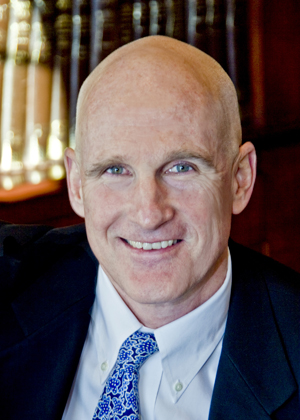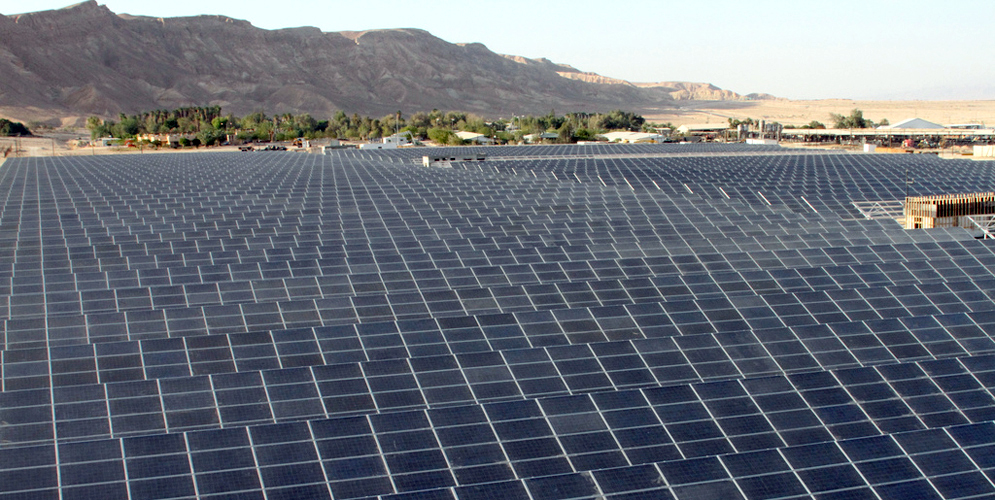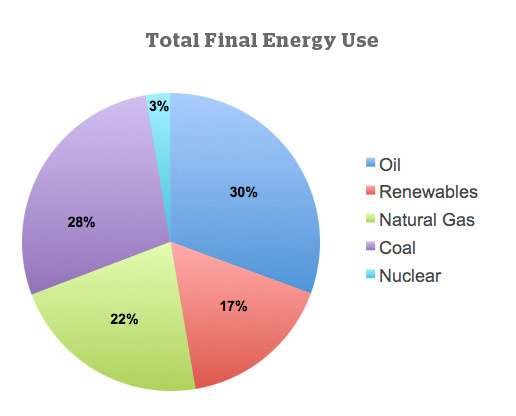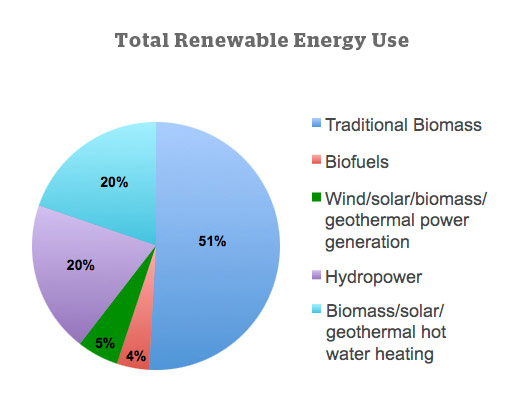The Climate Crisis: Breaking the Fossil Fuel Habit
The promise, and challenge, of shifting to alternative energy
In this weeklong series, BU researchers explore the science behind Earth’s environmental changes, and what they mean for our future.
Think of it as worldwide addiction. At least 80 percent of the energy people use to drive, heat their homes, and power gadgets comes from fossil fuels such as coal, oil, and natural gas, and the consumption of all of the above contributes to global warming.
Kicking that addiction will be hard. Cutler Cleveland, a College of Arts & Sciences professor of earth and environment and director of the Center for Energy & Environmental Studies, says the transition from fossil fuels to low-carbon alternatives like wind, solar, and nuclear power will require speedy technological advancement, huge capital investments, and the political—and personal—will of ordinary people. Cleveland, who has written or edited six books on ecological economics and energy transitions and is the founding editor-in-chief of the online reference source Encyclopedia of Earth, is convinced that if we hope to “avert the more dire scenarios, there needs to be radical surgery now.”

Cleveland’s convictions come not only from his own research, but also from a series of eight seminars that brought environmental experts from universities in the United States and Europe to BU throughout the 2010–2011 academic year. The John E. Sawyer Seminars on Energy and Society were sponsored by the Frederick S. Pardee Center for the Study of the Longer-Range Future and supported by a grant from the Andrew W. Mellon Foundation.
“We will have to engineer the transition,” says Cleveland. “And we’ve never really done that in the history of humanity.”
Some countries, however, have done better than others. In 2011, China invested $51 billion in alternative energy technologies and led the world in renewable power capacity with 70 total gigawatts, according to the international nonprofit Renewable Energy Policy Network for the 21st Century. That same year, the United States put $48 billion in such technologies and achieved total generation of 68 gigawatts. Germany, the third greatest investor in alternatives, spent $31 billion and reached total capacity of 61 gigawatts. Most other countries lagged far behind. No country has sworn off fossil fuels.
Germany’s production of alternative energy, which provides nearly 11 percent of the country’s energy needs, leads G-20 (a group of finance ministers and central bank governors from 20 major economies) members, states a 2012 report by the National Resources Defense Council. Indonesia follows, with roughly 6 percent, and next is the United Kingdom, at about 4 percent. The United States came in seventh, with only 3 percent of its electricity coming from renewables.

Worldwide investment in solar power has increased sharply in recent years, including in places like Israel, where the Arava Power Company, headed by Yosef Abramowitz (CAS’87), installed 18,500 photovoltaic panels. Photo courtesy of Arava Power Company
Cleveland’s research suggests that not a single country will flip its dependency completely to renewables within the next 50 years. Still, he says, there is encouraging growth in some sectors. Government subsidies and technological improvements in the manufacture of turbines have lowered the cost of wind energy, so that it now competes with energy produced by natural gas and burning coal. But solar, which has also benefited from subsidies and technological advancements, and wind account for only a couple of percentage points of total power generation in the world.
And while the federal government has not established benchmarks for wind and solar production, many states have. Here in Massachusetts, the legislature passed the Green Communities Act in 2008, requiring that 15 percent of the commonwealth’s electricity come from renewable energy by 2020. Massachusetts plans to generate 2,000 megawatts of wind energy within the next seven years and 250 megawatts of solar power by 2017. While far from reaching its wind energy goal, the commonwealth reports that it’s 90 percent of the way to accomplishing its solar goal. The commitments have helped Massachusetts tie with Texas for fifth place nationally in a 2012 Ernst & Young report on promising renewable energy markets.

Nuclear power, another low-carbon energy source, currently provides 3 percent of the world’s energy, Cleveland says, but its hazardous waste disposal and safety risks make it less desirable than wind and solar. “Nuclear energy has a higher life-cycle cost than wind and fossil fuel, because it’s very capital-intensive,” he says. “A routinely operated nuclear plant is benign, compared to a coal plant, but it does have this small possibility of going Fukushima on you.”
The United States has 65 operating nuclear power plants, most of them concentrated along the East Coast and in the Midwest and all of them built more than 30 years ago. Cleveland says that makes planning a new one relatively unknown territory, because there are no current price comparisons. It’s also politically risky, as most communities don’t want one in their backyard and are hesitant to adopt a technology that produces radioactive waste with a half-life of thousands of years.
Biomass—such as switchgrass, corn, or sugar cane converted to biofuel—is another alternative source of energy, but Cleveland is discouraged by the carbon exchange of the biomass process. “It involves removing vegetation from the Earth’s surface,” he says, “and humanity has a very poor track record of causing lots of other environmental problems when you start monkeying with changing land cover.” As a source, he prefers energy-rich sugar cane to corn-based ethanol, because corn is grown industrially with large inputs of oil, which increases carbon emissions.

“When you compare the energy in the ethanol and all the energy it took” to plant, cultivate, transport, and process it, “it’s only a very modest win,” he says. “It’s certainly way less than the energy gain you get from just producing oil directly from crude.”
What does Cleveland’s research tell him about the best way to break the fossil fuel habit? The first step, he says, should be using fossil fuels to build a sustainable energy infrastructure. “You need to shift away from coal and oil to natural gas in the short run, and probably leave a lot of coal in the Earth’s crust,” he says. “And you need to use fossil fuel to radically ramp up renewables and/or nuclear.”
That means “sticks and carrots, a lot of them,” he says. “If you want the transition to happen faster than it otherwise would, you’re going to have to alter incentives. And you’re going to have to change the price of carbon.”
Gas tax hikes, like the one Massachusetts Governor Deval Patrick recently proposed, or divestment from fossil fuels are moves in the right direction. Cleveland thinks federal legislation taxing carbon or an international cap-and-trade system would put a bigger dent in emissions.
Finally, he says, politicians have to address the “third rail of U.S. energy policy”—demand. People need to know that their choices can have a negative impact on the environment. “Working 30 miles from home and driving a Hummer to work alone in the morning is probably one of the most absurd, extravagant behaviors,” he says. “We’ll look back and say, ‘Oh my God!’ The excesses of the Romans will look like Romper Room.” Commuters can do that only because “energy is dirt cheap. People are going to in the long run live closer to where they work and play.”
And perhaps more people should start thinking like Howard T. Odum, Cleveland says. The ecologist and author of A Prosperous Way Down argues that to survive, the human species must learn how to decline prosperously.
“No one wants to think that way, because we connect happiness and well-being with increases in the physical consumption of goods and services,” Cleveland says. “It’s a conversation that should be had, but good luck getting elected on that platform.”
This Series
Also in
The Climate Crisis
-
March 25, 2013
The Climate Crisis: Why the Earth Is Warming
-
March 26, 2013
The Climate Crisis: Tracking Change, Predicting Trouble
-
March 27, 2013
The Climate Crisis: Measuring Boston’s Metabolism

Comments & Discussion
Boston University moderates comments to facilitate an informed, substantive, civil conversation. Abusive, profane, self-promotional, misleading, incoherent or off-topic comments will be rejected. Moderators are staffed during regular business hours (EST) and can only accept comments written in English. Statistics or facts must include a citation or a link to the citation.